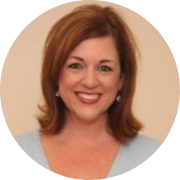

Our Instructor Spotlight is on one of our three HR Leadership Academy instructors, Katherine Burnett. From working in leadership for the first bank to have a credit card to serving as a leadership development manager for T-Mobile, Katherine’s experience allows her to bring a wealth of personal insight to the Academy. Her sessions will teach you both the human and business side of business…and how to use knowledge in both areas to be a powerful HR leader.
Jeff: What professional HR experience do you bring to the HR Leadership Academy?
Katherine: My first professional job was working in employee benefits for a national insurance company. However, my HR experience started when I was able to be the employee benefits specialist for the city of Glendale, Arizona. After that, I moved to Springfield, MO and began working for First Chicago Bank (now Chase) in the bank’s credit card division. First Card (the credit card division) was the largest visa issuer in the world. I got my start in recruiting at First Card; we received 3K applicants for the first 50 positions available in the division. Later, I worked on many different projects for First Chicago such as developing the curriculum for the first online bank they opened, Wingspan! The opportunity that brought me to Chattanooga was being hired as a leadership development manager for T-Mobile. I was part of the team that created their 3-day leadership academy for T-Mobile managers (all 10k of them) nationwide. I semi-retired a few years ago to work as a freelance leadership development consultant…and become a foster/adoptive mom!
J: Why is the HR Leadership Academy, and education for our future HR leaders, important?
K: Leaders at any stage in their career must continue to grow, whether that be by being a mentor or actively participating in an educational program like UTC’s HR Leadership Academy. (You’ll learn from being both a mentor and participant!) When I was immature and inexperienced as a leader, I grew because I had wonderful leaders in HR and in cross-functional areas that helped me to develop. Part of becoming a strategic HR business leader is not just sitting in a silo and learning solely from HR leaders; it’s also learning about how HR is impacting and partnering with leaders in other departments and employees. The Academy will teach you how to have conversations with those you work with in all areas of business. You’ll learn how to have critical conversations, move people forward, and the difference between just motivating someone and inspiring them. I like to say that I can motivate someone for a moment but inspire them for a lifetime.
J: Why are the sessions you’re teaching important for HR leaders?
K: I am teaching four different DDI courses: Building & Sustaining Trust, Driving Change, Strategies for Influencing Others, and Coaching: Moving People Forward. All of these will teach leaders not to just understand the topics but how to live out what they are being taught and set the example. If I say one thing but act contrary to my words, I am a hypocrite. HR leaders need to learn to create and live out the culture of their organization. I will coach leaders on how to have crucial conversations around questions like:
- How do we improve performance?
- How do I fix a toxic work relationship?
- How do I identify illegal activity at work?
- How do I get promoted?
If we can better impact someone’s life at work, it will improve their personal life too (and vice versa). The impact will touch the lives of everyone around them, making a true leadership difference.
M: How do you define leadership?
K: To figure out if you’re a leader, ask yourself, “Am I someone that people are following?” I love the saying, “If you’re in a leadership position and look behind you, and nobody’s there, you’re just out for a walk.” True leaders realize the impact they have as a model of culture and behavior and realize that if they are leading well, they will bring people along with them up the ladder.
J: What other qualities make a great HR leader?
K: They understand confidentiality. Everyone might be complaining about a situation, but you must keep the confidential information close. They are strong and can stand up for departments/employees when needed. They can advocate and be a voice for others. Great HR leaders also understand communication styles because, for example, some employees may prefer to make small talk before having discussions while some may prefer to cut straight to the matter. You’ll need to communicate differently for different styles. Also, great HR leaders are FUN! If you’re in an HR department that’s not fun, you might be in the wrong place if you want fun. We know how to have fun; we know how to balance what is serious and confidential and also how to inspire people.
J: What advice would you give someone wanting to enter an HR leadership role?
K: Make a conscious effort to get to know people on all levels of your organization. I will never forget when I was working at First Chicago and attended the grand opening of their new First Card location in Springfield, MO. The governor, mayor, city council members, bank CEOs, etc. were all there in attendance; it was a big deal. Before coming to our function, the First Card CEO was late. When he announced why, he told us that he had to meet the important people, aka the call center reps. He asked them about their kids and thanked them for their hard work. During his grand opening speech, the CEO said that if he didn’t show up for work tomorrow, the company will still run. However, if the call center reps didn’t show up for work tomorrow, First Card would shut down. His words were so profound to me because he truly valued the front-line employees and wanted to know them personally. Great HR leaders find it to be an honor that they can know people and impact their lives for the better.
Also, I advise finding a confidant in your HR office who you can vent to, confide in, and from whom to get honest feedback. We all need that person.
Never forget what it feels like to be new. In HR, we are generally responsible for onboarding new employees and leaders. We want to set them up for success, and the first 90 days an employee spends at a new company are imperative to their ongoing success. Assist in their transition to their new team.
Find ways to encourage others. For example, anytime I felt disconnected at work, I would write internal office notes telling people something I appreciated about them. We never know what people’s lives are like outside of work, so it’s nice to pass on kindness and inspire someone else.
Last, there is a common misconception that HR leaders need to know it all, so they won’t ask for advice, help, or to role-play situations. Find networking opportunities and HR friends to bounce ideas off of. Be a constant learner.
M: What are a couple of fun facts about you?
- I love the mountains. My family and I regularly visit the Blue Ridge Mountains to refresh and recharge.
- One thing I learned from my friends at T-Mobile is that I love to scrapbook. I go to weekend retreats where that’s all I do. Before COVID, I also held get-togethers once a month at my house for ladies to come together, build connections, and scrapbook. We had ladies ranging from 20-60+, from every race, socioeconomic status, and marital status. We solved all the world’s problems during our few hours together every month!
J: Is there anything else you would like to share about the HR Leadership Academy?
K: I am so excited to share my passion and experience. I am looking forward to learning from participants in the Academy as well. It’s an honor to teach and inspire HR leaders to see and love what people come to the table with and how to bring the best out of them. I love being in the people business!
ABOUT THE AUTHORS:

Marah Whitaker (think Laura with an M) serves as the marketing assistant for the UTC Center for Professional Education. During the workday, she spends time writing blog posts, creating content for social media, developing email campaigns, and building relationships with CPE’s customer base. During her free time, you can find her getting lost in a good book, having spontaneous dance parties, playing piano, and going to Buffalo Wild Wings on Wing Night. Professionally and personally, she aspires to live by Mr. Feeny’s advice, “Dream. Believe. Try. Do Good.” She strives to use her passions to serve others and contribute positively to the world around her.
Connect with Marah on LinkedIn.

Jeff Grant sees himself as a storyteller, and thankfully, he gets to tell some incredible stories by serving as the marketing coordinator for the UTC Center for Professional Education. During the workday, Jeff can be found implementing new marketing strategies or writing content. When Jeff is away from the office, he could be found hiking the Cumberland Trail, trying new recipes, or getting lost in a good book.
Connect with Jeff on LinkedIn.